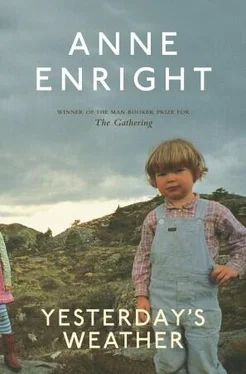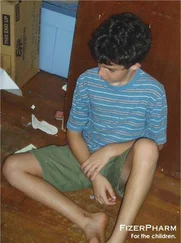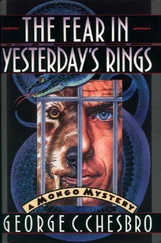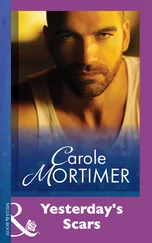My husband is a good man, and I love him, though not in the usual way. By this I mean that he is kindly, not that he is dull — I have learned to find interest in the expected. I should write about my daughter too, I suppose, except that this confessional mode agitates and bores me. Something, somewhere, marked my life out like this. I make up childhoods to try and explain. Nevertheless, I do not change. I gave birth to a daughter and I did not change.
One morning (a writer’s lie this, like all other ‘realizations’), one morning, it could be said, I looked in the mirror and found that I was middle aged.
Do you understand? I looked in the mirror and found that I was middle aged. The relief was overwhelming. My anonymity was crystallized, my life since Diarmuid was staring me in the face, tepid and blank. Everything had dropped away — I could do anything now . What interests me, I thought, is not life, the incidents that fill it, not images or moments, but this central greyness. I saw that I was ready. It was into this greyness that Felix would drop, like a hard little apple into the ripe ground.
Felix was only a boy that I loved. Will you believe that I did not harm him, that I made him happy? And not only with sweeties. I knew his mother, a proud, vulgar woman, and had shared my pregnancy with her, putting to rest her useless fears about breech births and extra chromosomes. I even (the irony of it!) placed my hand on her tight belly in the seventh month, a gesture that in our semi-detached world belongs to the husband alone. There was the little nugget of Felix, wrapped up in the silt of her body. I sometimes wonder whether I corrupted him then with that touch, whether my voluptas was sent through his transparent limbs, turning them into the clean, radiant flesh that was to possess me before he was fully grown.
In the meantime, I was the woman up the road and my daughter was his friend. They played doctors and nurses on the front porch, I suppose. Recently I dug over their dolls’ graveyard. I took some pleasure in their growing, though grazed knees and the simple, sloppy cruelty of children hold little charm for me. Felix was quiet — even then, you could not tell his arrogance, his animal calm, from the shyness of other small boys. In retrospect, he was probably beautiful, and I kissed him sometimes, as children need to be kissed. (Was I a bad mother? Oh no.) When I regret all those wasted caresses, I comfort myself with the fact that I could not have known. Looking at myself as I was, I can only see what those two children saw, a solid, transparent shape that wasn’t quite flesh, but ‘mother’ — the creature that was wrapped about them like certainty.
When gradually things began to change between them, I did not notice that either, and would have found it tedious if I had. My daughter started slamming doors and stealing lipsticks. One afternoon she came home crying and hid up in her bedroom. I was attacking the hall with the vacuum cleaner, hoping that the noise would disturb the concentration her self-pity seemed to require, when the knock came at the door. There was Felix on the doorstep, a grown boy, with an indifferently guilty look on his face, and his overlarge hands thrust into his pockets. Little Miss Madam opened her bedroom door and shouted down the stairs, ‘You’ve spoilt everything!’
What a charming scene! I looked at Felix (he smelt of gutting rats and climbing trees) and he looked back at me and laughed with an innocent, evil sense of complicity. That same cold dawn broke over my body and I had to shut the door.
Please believe me, I waited for months. I did not touch him, but carried instead a deep, hard pain in the bowl of my pelvis. I became clumsy again, everything I reached for fell to the floor and the kitchen was a mess of fragments. All that I saw opened up the ache, and I wanted the whole world inside me, with Felix at its centre, like a small, hard pip. The loss of dignity was wonderful, ghastly. I mimicked my daughter at the bathroom mirror, and haunted the fitting rooms of increasingly expensive shops. I put sex back into my appearance; brittle enough, but real. His sharp boy’s eyes, meanwhile, became blank again. Perhaps he was waiting too, though it seemed that when he looked at me, he saw nothing at all. I only had to touch him to become real.
He came to the house one day when she was out. I sat him in the kitchen on the promise of her return. I made a cup of tea and the impudent child held the silence and looked bored, while one knee knocked and rubbed against the table leg. I set down the mug of tea and the Eden-red apple on the table before him and then … I leaned over and touched him, in a way that he found surprising.
Small, dirty, strange. Felix’s eyes focused on me and it was like falling down a tunnel. He put his hand on my arm, to stop me, or to urge me on, and the pain I carried inside me like a dead child dropped quietly, burning as it went.
This was just the first time. There was a second, a third, a fourteenth. I might describe them — I have the words for it — but your prurience does not interest me; neither does your disbelief.
Our subterfuges became increasingly intricate, snatching an hour here or there while I pushed my daughter out to hockey practice, piano lessons, even horse riding. Lucky girl. Meanwhile Felix and I pressed out the sour honey of the deepest ecstasy that man or beast has ever known. And while she bounced along on rattle-backed, expensive old nags, while my husband fretted over mislaid returns and his secretary’s odour, I wrapped Felix, insensate with pleasure, in the fleshy pulp of my body where he ripened, the hard, sweet gall inside the cactus plant.
Then, of course, she found the letter:
Dear auntie Iris,
Mammy is sick and I can’t come today.
Love
Felix.
PS Larry Dunne was talking about sex again today enough to make you puke. He says he has been putting it into Lucy down the road but I just had to laugh because he obviously hasn’t seen any of that and was just blowing. I nearly said about you but I didn’t. Don’t worry.
I never throw hysterics. So how could I have reared such an hysterical child? She gave up the riding lessons, the hockey, the piano, and became a large, uncultured lout. She rang him night and day, she wept in his bedroom. She lived at our throats and by the time she left, he had turned into a large, normal young man. He went to discos, he wanted to get into the bank. I met his mother on the street one day; she boasted of his many girlfriends, and complained that they never lasted long. I can imagine why.
I could have killed myself then. I allowed myself to fantasize cancers and car accidents. I might have killed myself even before Felix, but I didn’t have a life before, so it was ridiculous to think of throwing it away. Felix made everything possible, including dying, and it is for this that I am grateful, more than for anything else. I lived, of course. For a while I thought of finding a replacement, combing housing estates like a queen bee, waiting for the look of recognition. There was one supporting lead in a school play, but that blank gleam in his eye was only stage fright.
Recently I discovered their dolls’ graveyard; decapitated plastic, split by my spade. There was clay in the artificial hair and I thought about — I longed for — the clay that would clog my own.
So. Adieu Adieu Adieu. Self-indulgent, I know, but what do you want me to become? My husband’s nurse? (Oh, the grateful took in his paralysed eyes.) And then one of the army of widows, with headscarf and shopping bag, who stop in the middle of the street, shake their heads and say ‘Someone must have walked over my grave.’ Felix.
Felix sitting on my headstone, with an apple in his fist, like he sat at the bottom of the bed, laughing, puzzled, amazed at every inch of me. Felix at that particular point of refinement where wonder, cruelty and hair-trigger skin make even the imaginary and the ridiculous real. He could look at offal, at grass, at the streaks his fingers made on my thigh with the same indifferent glee.
Читать дальше












